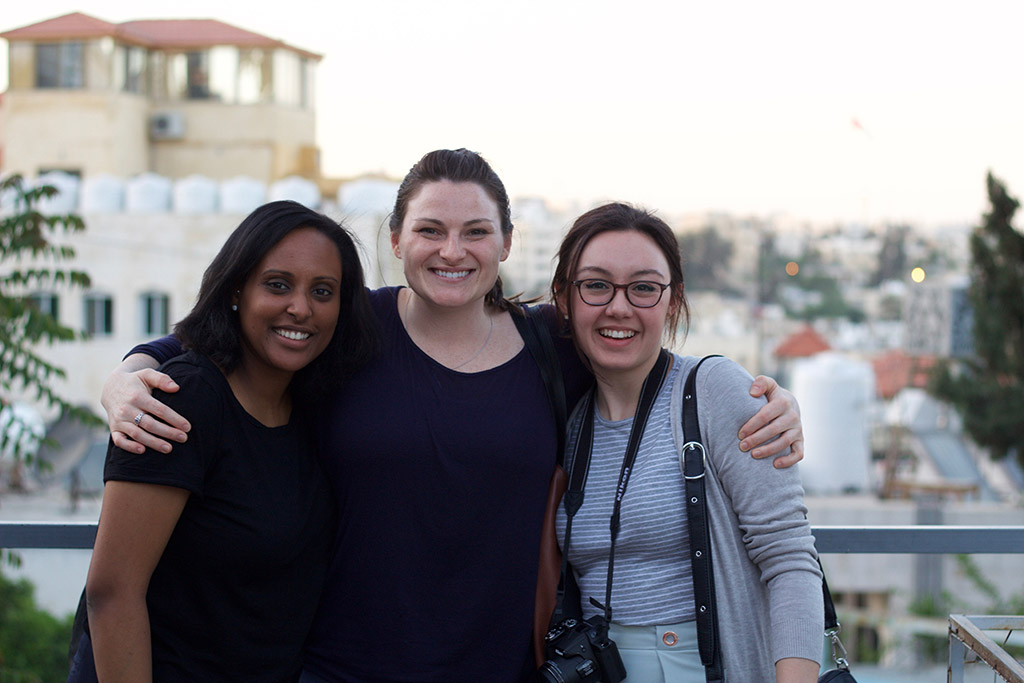Marin MacLeod (MPH 2017) can pinpoint the moment the proverbial penny dropped: In April 2017, she and four fellow students travelled to Amman, Jordan, to research a cash-assistance program led by the UN Refugee Agency.
“I had a moment where I realized that ‘business as usual’ is just not good enough,” says MacLeod. “If we want to reach the most vulnerable, we need to challenge the status quo.”
For one year, students in the Reach Project – offered through the Munk School of Global Affairs & Public Policy – examine development programs that are helping marginalized communities. Then, the students spend up to 10 days interviewing people who work on these programs.
In Amman, MacLeod witnessed how the cash-assistance program worked. In the past, UN agencies have provided help to refugees in the form of goods or services, with limited ability to tailor support to match a family’s needs. Under the new program, UN agents conduct home visits with refugee families. Those deemed eligible for aid receive cash payments through an ATM. The system allows the recipients to make decisions about what they need and the agency to track assistance and prevent fraud, using biometric data a member of the family has provided.
One of the most valuable lessons, says MacLeod, was learning that although, from afar, the program seems to involve just one UN agency, in fact many organizations contribute to its success. “In the field, you begin to see the complexity of reaching refugees in a conflict zone,” she says.
The Reach Project is made possible by a partnership between the Mastercard Center for Inclusive Growth and the Munk School of Global Affairs & Public Policy, which was established with a landmark gift from the late Peter Munk (BASc 1952) and Melanie Munk.
Pictured: Elizabeth Assefa, Marin MacLeod and Natalie Boychuk





